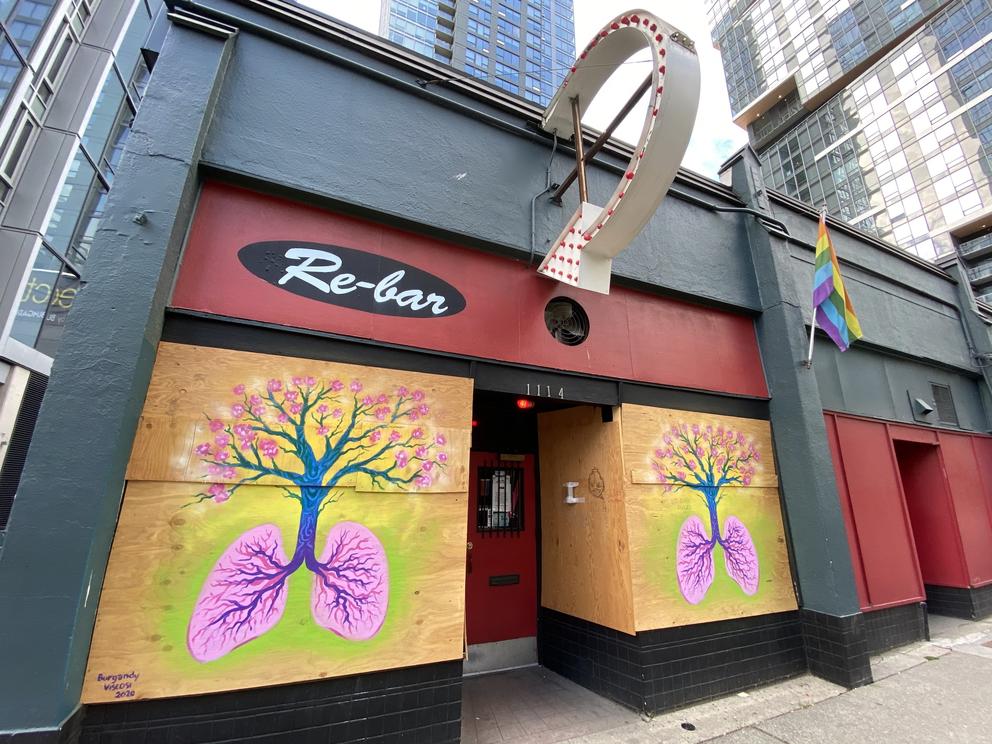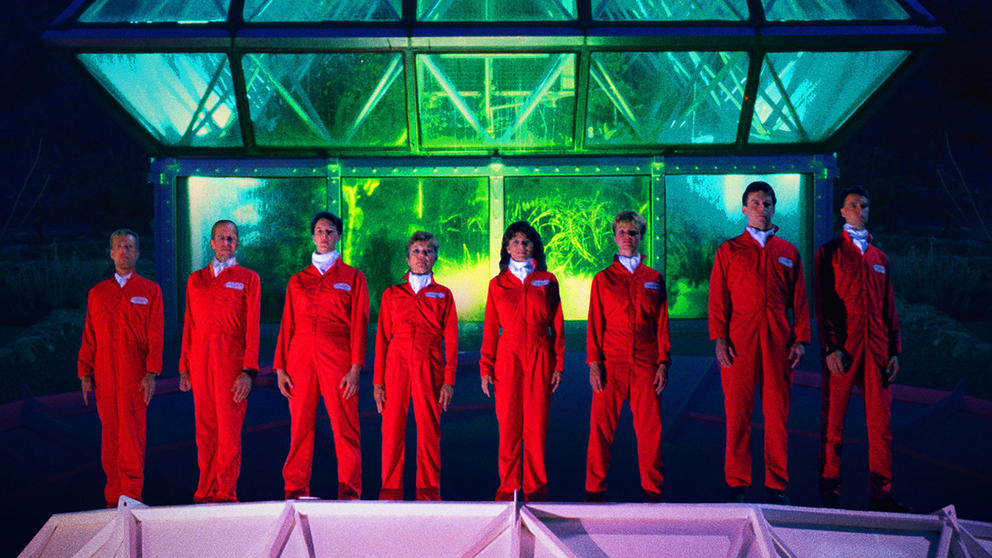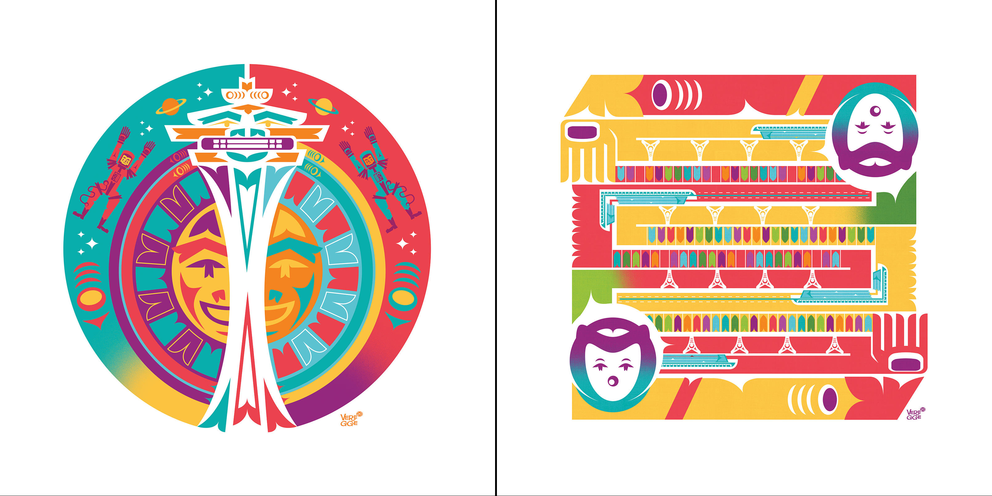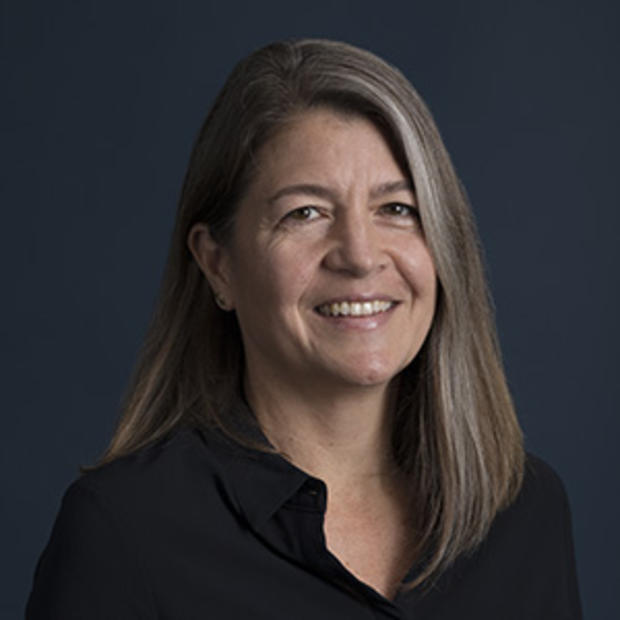It happened at the Re-bar, which last weekend announced it is closing after 30 years — sad news for those of us who spent many sweaty nights dancing to sets by DJ Riz and yelling over the music. (I remember being amazed and thankful for the jug of free water available on the counter — apparently it was the first Seattle club to offer such an amenity.) The legendary bar, dance club, theater and community gathering space sent up a flare last year, when the building’s owner announced an intent to sell. Combined with the massive expense of renting a closed club during the COVID-19 pandemic, it seemed like the right time to shutter. Stalwart, the Re-bar says it’s merely on hiatus, planning to reopen in South Seattle in the fall of 2021.
Even if temporary, the many COVID-related closures and cancellations can make it feel like our city’s culture is slipping away. Especially as the tent pole events of summer come crashing down — Seattle International Film Festival, Northwest Folklife Festival, the Fremont Solstice Parade, the Pride Parade, the Bellevue Arts Museum Arts Fair, Capitol Hill Block Party and the Seattle Art Fair are all canceled. Even if you hate crowds and didn’t plan to attend any of the above, it seems like a lot to lose.
So what do we do without our summer staples? Get creative. If you miss SIFF — which should’ve had its gala kickoff tonight — make some popcorn and curate your own fest. Start with Virtual SIFF Cinema, which is streaming a regularly refreshed roster of independent films for a few bucks ($3.99 for a three-day online rental). Current offerings include The Booksellers, a documentary ode to independent bookstores (our local trove of which have moved operations online and could use your help to stay afloat).
Or consider Spaceship Earth, a new documentary about the eight people who quarantined themselves inside an experimental biosphere for two years in the early 1990s. Suffice it to say, mistakes were made. But it’ll make you feel better about our own isolation measures.
Northwest Film Forum has a similar system for screening indie films online, and in addition to its rich roster for grown-ups, this week is streaming selections from the stellar Children’s Film Festival Seattle, which was cut short earlier this year by the coronavirus. (Bonus for parents desperate to fill the infinite hours of home schooling: The screenings happen at kid-friendly times.)
At MoPOP, check out “Good Planets Are Hard to Find,” a series featuring iconic dystopian movies about environmental collapse (too soon?). Because the films chosen are all available on standard streaming services, viewers register for a watch-along party, hit play at the same time and engage in a virtual post-film discussion with an expert. This week, the featured film is cult favorite Dune, the unmitigated disaster directed by David Lynch and starring Sting. The speaker is Northwest “cli-fi” (climate fiction!) author Omar El Akkad (May 18, 6 p.m, free).
Add to that new virtual screenings from Ark Lodge Cinema in Columbia City, as well as The Grand Illusion, Seattle’s longest-running movie theater. Suddenly you have yourself a real film festival, rich in unusual offerings, that’s appropriately socially distanced, way more interesting than Netflix and helps keep local independent theaters alive.
Because we are currently without plans — no dance nights, music shows, cultural events or travel to anticipate — we feel stuck in a perpetual present. But art is still happening, pushing forward all around us. This week the local filmmakers behind the new kung fu comedy The Paper Tigers (which I visited on set last year) released their first official trailer. The glamour of Cannes is kaput this year, but a sneak peek of the film will screen in the festival’s “buyer’s showcase” session.
Though in many ways we have pressed pause during this pandemic, Northwest creatives aren’t sitting still. Take local artist Monyee Chau, who, as Crosscut reporter Margo Vansynghel reported this week, is creating posters, stickers and comics to counteract the rise in anti-Asian racism that has emerged during COVID-19. Or S’Klallam illustrator Jeffrey Veregge, whose new (yes, virtual) show at Stonington Gallery reveals a signature “Salish geek” style that combines Coast Salish formline with pop culture classics. As Crosscut reporter Agueda Pacheco Flores notes in her profile of the artist, his new body of work is based on imagery from the Seattle World’s Fair, a time when, he says, “The minds and imaginations of the public were in a much more cheerful and hopeful disposition.” The creativity, he says, “was unfettered.”
And it turns out radical thinking is still happening at Seattle Center. Last week local rapper Raz Simone put on a live show for select fans in the parking lot outside of Memorial Stadium. With the Space Needle towering behind, he performed atop conjoined pay booths to a small crowd watching from their cars. As The Seattle Times reported, there was no outside amplification — the auto-bound audience listened on headphones, in a scenario similar to the “drive-in dance” shows being performed by local company LanDforms. Will this become a standard of pandemic performance? (Tom Skerritt, playing Seattle mayor in Singles, turns down a proposed Supertrain, explaining: “People love their cars.”) The event was an innovative, if technically nonpermitted, way to recapture some of the culture we miss during these strange days.
We may not be able to dance in a knot of sweaty bodies, not for a long time. And we probably can’t serve ourselves from a communal jug of water ever again. But we can experience music and movement and movies together, if slightly apart.
Get the latest in local arts and culture
This weekly newsletter brings arts news and cultural events straight to your inbox.








